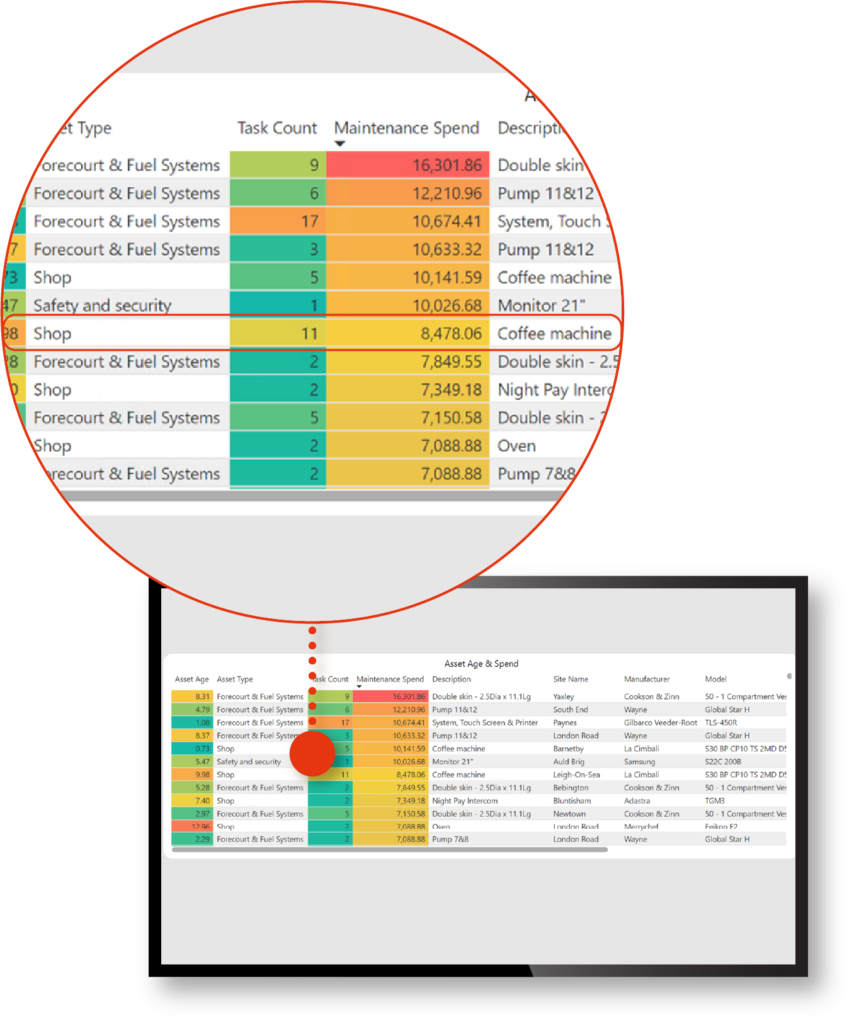Fuel retailers are increasingly focusing on expanding and improving their in-store food service offer in response to the rising demands of drivers for high-quality food options and to boost their revenue from food and convenience sales.
Fuel prices often determine a driver’s choice of forecourt, but an enticing food offer or a favorite coffee brand are often equally good reasons for pulling into a particular service station or c-store. In-store food offerings have evolved massively in recent years, whether that’s through branded, franchise partnerships or by offering top quality, locally sourced groceries, the forecourt store has moved a long way beyond a quick stop for milk or bread.
Customers now expect high-quality food-to-go choices while they’re on the road, along with expanded grocery ranges. The traditional chilled, pre-packaged food with a long shelf-life has evolved into hot food-to-go choices, or even food made to order.
Converting forecourt visits to in-store visits
While EV drivers typically spend between 20-40 minutes charging at hubs, giving them time and opportunity to take advantage of an expanded food service offer, converting a greater number of forecourt visits by ICE drivers into in-store visits remains a challenge for retailers. But, once you’ve succeeded in enticing the customer in-store, it’s essential to get the food service customer experience right if you want them to return.
With an expanded food service offering comes a new range of assets, each of which is fundamental to the successful delivery of that offer, and all of which need maintaining, repairing and monitoring. Whether it’s a coffee machine, pizza oven, or hot dog roller, if it’s not working, that’s revenue lost and a dissatisfied customer.
If equipment goes down, getting the asset back in use for customers is critical. Urgent helps fuel retailers keep their food-to-go running smoothly by automating repair workflows and planned preventative maintenance to minimize customer disappointment and asset downtime.
Using the Urgent platform, retailers can keep track of their in-store assets in one place, without having to jump between multiple vendor interfaces. Urgent dashboards provide full visibility of what’s happening with in-store assets across a portfolio of sites. How much downtime has been recorded by asset? How do different OEM models compare? And which assets or asset groups are costing the most to repair?

Refrigeration maintenance spend ranks #1 of in-store assets
According to Techniche data, maintenance spend on refrigeration assets is higher than on any other in-store asset.
Temperature sensors on assets such as walk-in refrigerators can detect anomalies or faults before they impact on day-to-day operations or the customer experience. A rise in temperature could suggest a chiller door has been left open accidentally. Urgent takes these alerts and sends a notification to site staff to check, before valuable stock is damaged, or automates the creation of a maintenance task and dispatches a service engineer, meaning that asset can be fixed and operational with the minimum delay.
Coffee machines are often the largest revenue and profit-generating assets of all food and beverage assets at a fuel station. So it’s not surprising that retailers prioritize keeping these assets up and running to avoid both a negative customer experience and missed revenue opportunities. Techniche data shows that coffee machines come second only to fridges and chillers in terms of maintenance spend.
Site operators often don’t know what the specific problem is with an asset. They’ll know, for example, that the coffee machine isn’t working, but not which component is faulty – is it the bean grinder or the milk pump? Coffee machine data captured in Urgent helps retailers pinpoint the root cause of issues to highlight patterns in faults and failures. These insights give retailers the full picture of the condition of their assets, help identify which manufacturer model requires the most intervention, or which brand outperforms others, and support decisions on future asset replacement programs.
Using the Urgent platform enables fuel retailers to understand exactly how food-to-go assets are performing and where to make changes that will ensure assets are in top condition for customer use, improve the in-store food service offer, and deliver a reliable customer experience.


